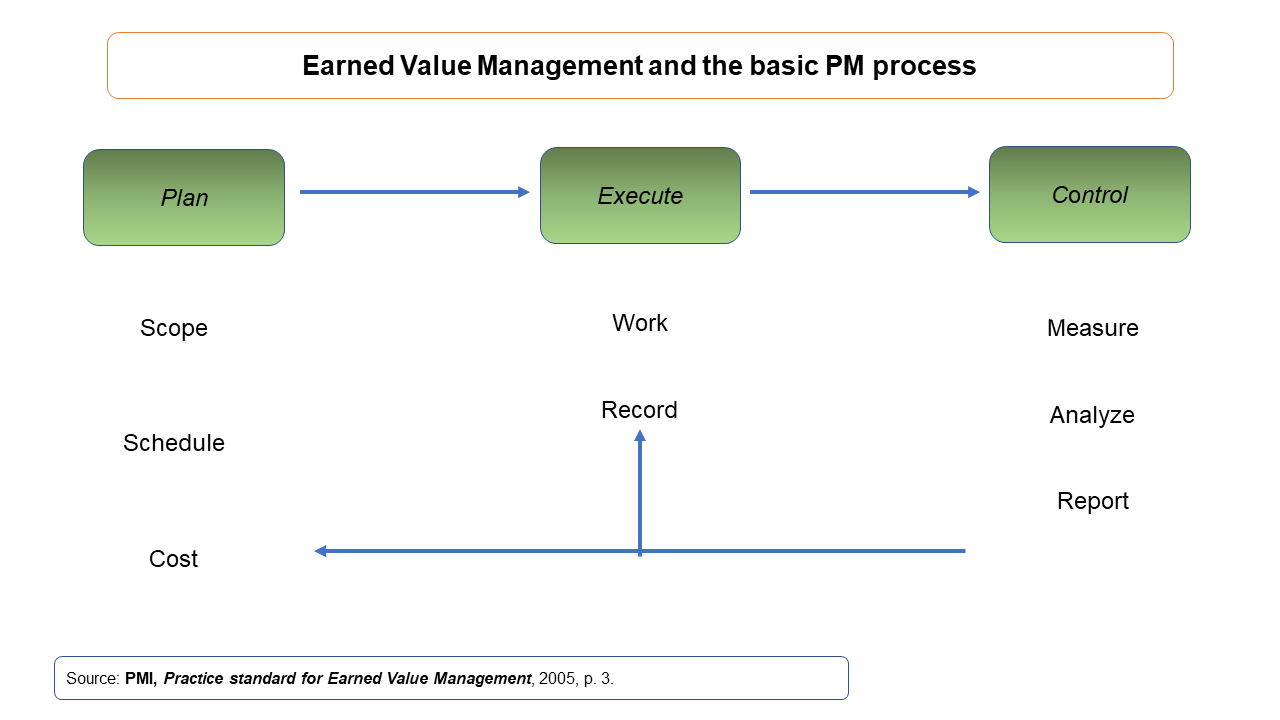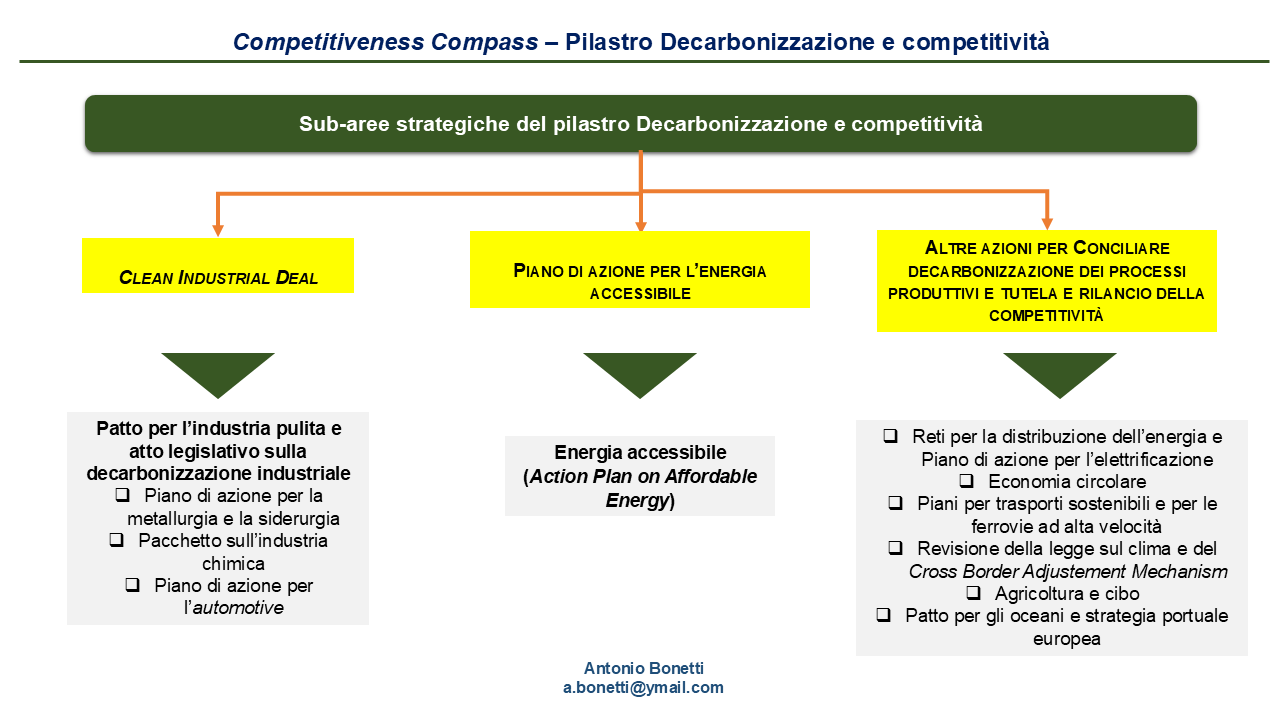Earned Value Management is a tool widely used when controlling progress and quality of projects.
As outlined in the Project Management Institute Guide ‘Practice Standard for Earned Value Management’ (2005), ‘project management is primarily a matter of planning, executing and controlling work’.
In particular, ‘project control focuses mostly on monitoring and reporting the execution of project management plans related to:
• Scope,
• Schedule, and
• Cost’ (see Figure that follows).
Earned Value Management (EVM) equips managers with a sound methodology aimed at integrating the ongoing monitoring of project scope, schedule and inputs. Furthermore, it ca be used for forecasting:
• Delays that could be detrimental to completing work to be done before the established deadline;
• Risks of exceeding the budget constraint.
These the reasons why ‘EVM can play a crucial role in answering management questions that are critical to the success of every project, such as:
• Are we ahead of or behind schedule?
• How efficiently are we using our time?
• When is the project likely to be completed?
• Are we currently under or over our budget?
• How efficiently are we using our resources?
• What is the remaining work likely to cost?
• What is the entire project likely to cost?
• How much will we be under or over budget at the end?’ (see ‘Practice Standard for Earned Value Management’ (2005), page 1).












